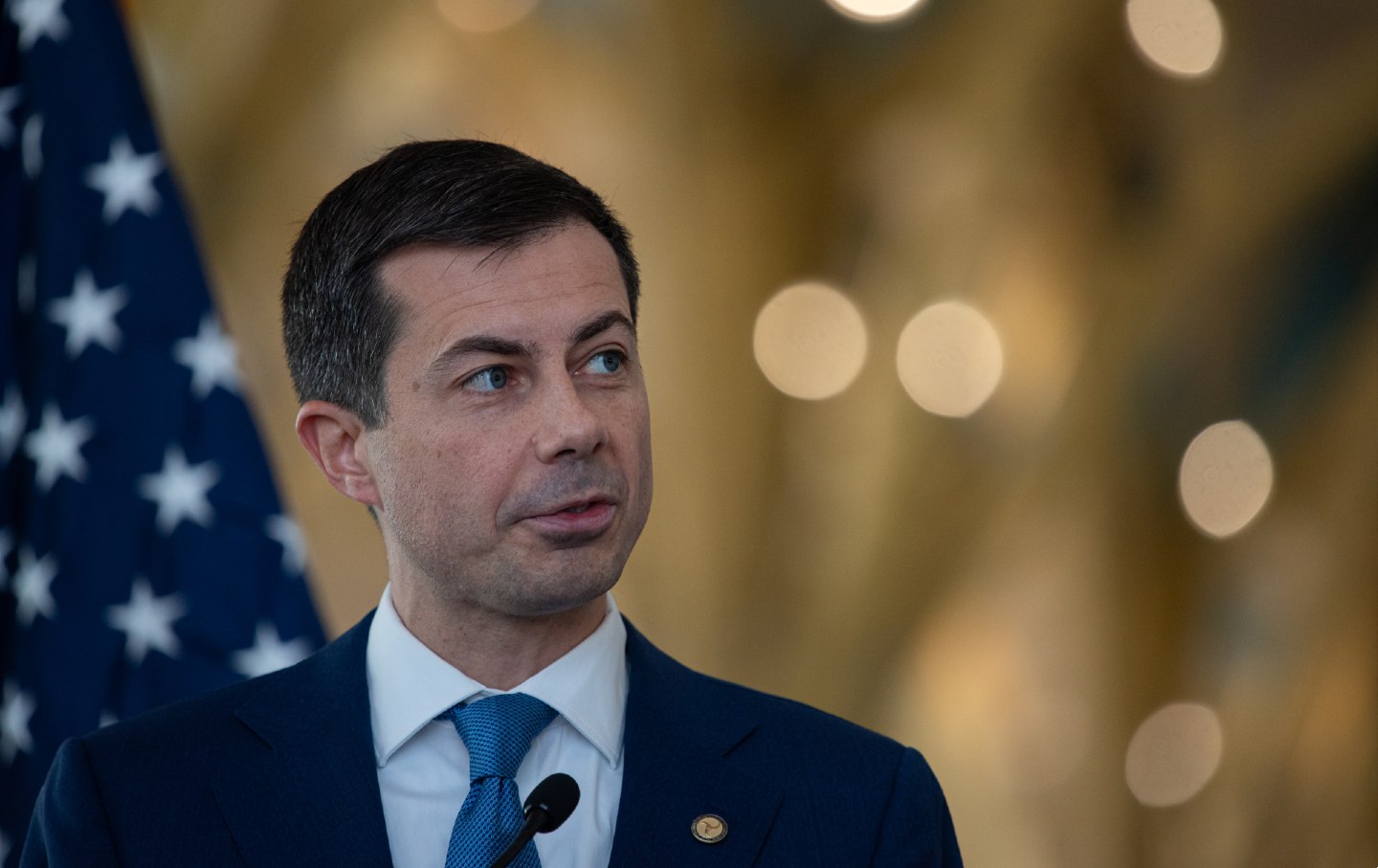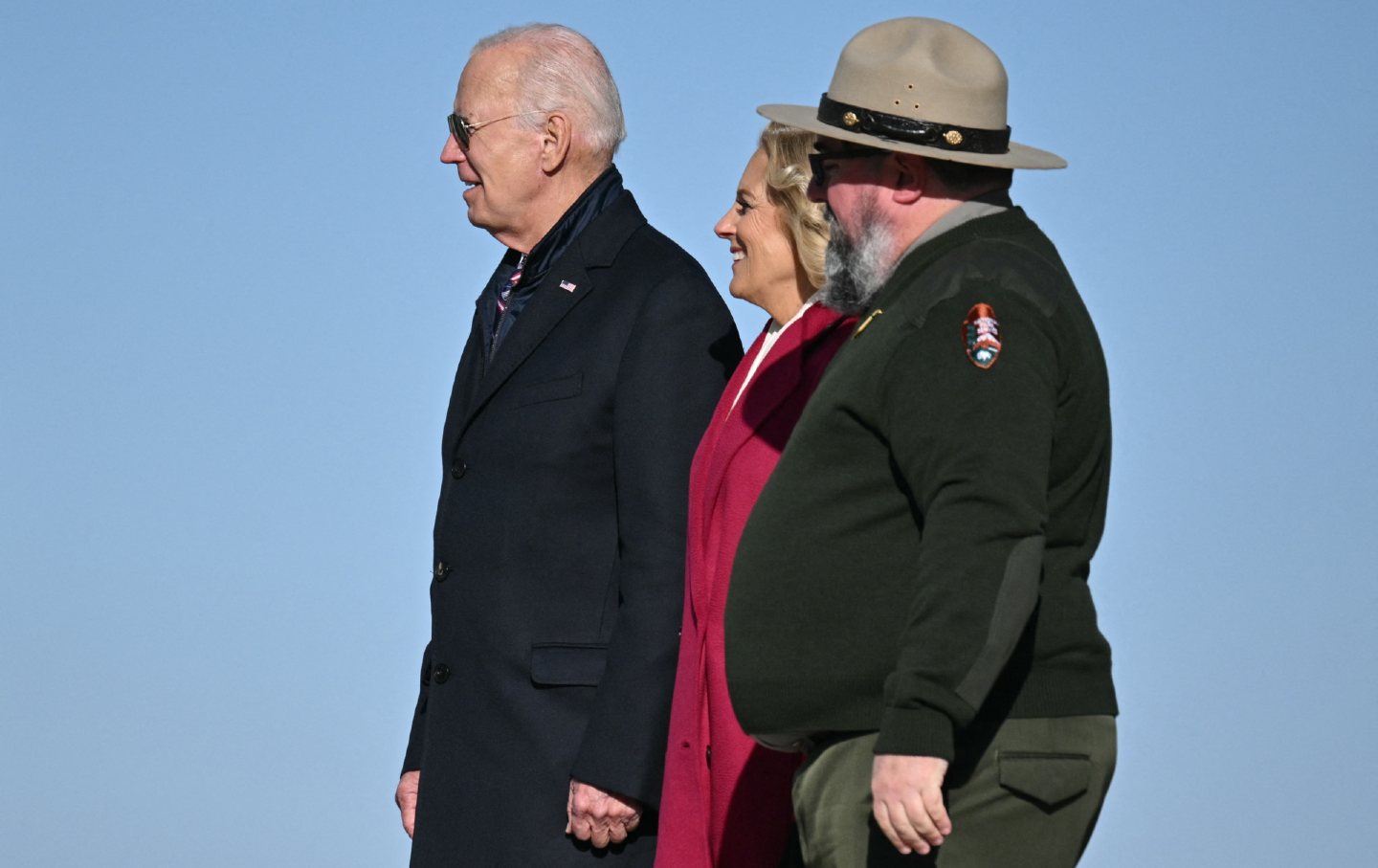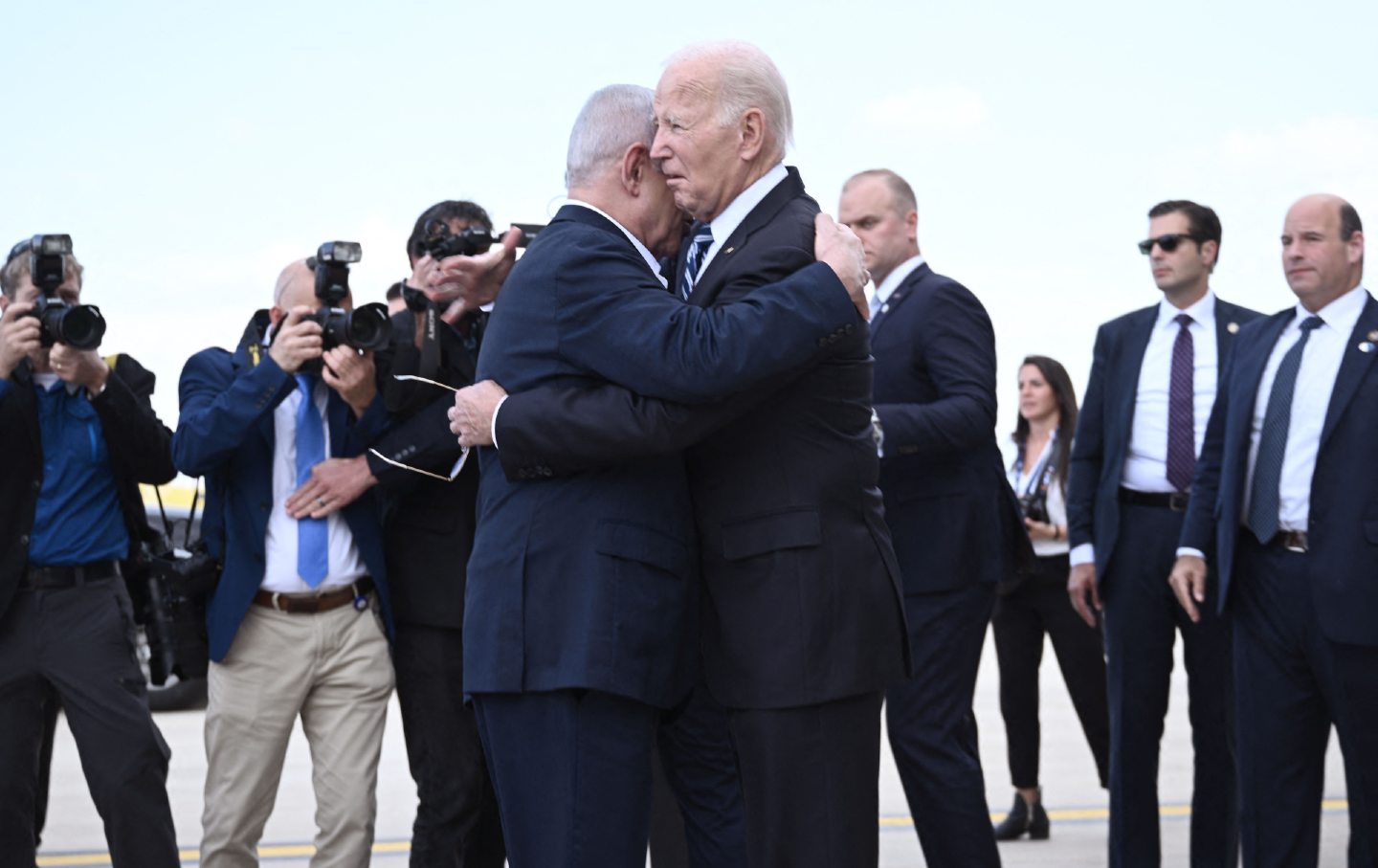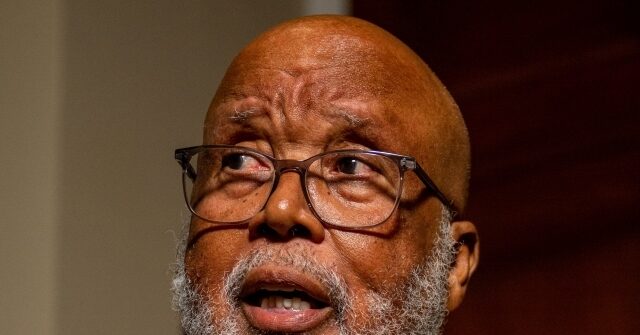The president and his top advisers are prisoners of nostalgic fantasies.
George W. Bush may fancy himself a painter, but his greatest contribution to the visual arts is in photography. On May 1, 2003, Bush created indelible images of imperial hubris when he arrived, via a Lockheed S-3 Viking, on the aircraft carrier USS Abraham Lincoln and declared victory in the Iraq War, then only six weeks old. Bedecked and beclowned in a flight suit—though he’d served as a pilot in the Texas National Guard, he was not qualified to land a jet on a carrier, and though the event was carefully stage-managed to conceal this fact, arrived as a mere passenger on the Lincoln—Bush took a group photo with sailors who had just participated in combat operations in the Persian Gulf and then delivered a speech in front of a red-white-and-blue banner reading “Mission Accomplished.”
In his speech Bush famously proclaimed, “Major combat operations in Iraq have ended. In the battle of Iraq, the United States and our allies have prevailed.” In fact, the war Bush had launched was just starting to get heated, with the American occupation triggering a ferocious insurgency, which itself led to an even more murderous counterinsurgency under the rubric of “the Surge.” Far being the end of a successful mission, Bush’s speech came at the cusp of a much wider regime of torture, assassination, and slaughter. The United States would retain troops in Iraq for another eight years—at the end of which Bush’s larger project of a Middle East remade in America’s image stood revealed as world-historical folly.
The “Mission Accomplished” photo remains an iconic snapshot of the blindness of imperialism at its most presumptuous, the perfect emblem of self-satisfied power utterly detached from reality. Remarkably, there are some in Joe Biden’s White House who are hoping to copy Bush’s folly and portray a president mired in a deepening quagmire as a triumphant conqueror.

A HuffPost piece by Akbar Shahid Ahmed reports that Brett McGurk, a top-level White House adviser who has played a shaping role in Biden’s foreign policy, is circulating a plan for a whirlwind negotiation of a alliance between Israel and Saudi Arabia after the current Gaza war ends. According to HuffPost, McGurk’s vision is outlined in “a top-secret document shared in some circles of the Washington national security establishment” and “envisions Biden traveling to the region in the coming months on ‘a victory tour’ to claim credit for an Israel-Saudi deal as an answer to Gaza’s pain.”
Current Issue

Any “victory tour” in the wake of the horrific civilian carnage in Gaza would be as self-discrediting as the “Mission Accomplished” speech. Equally delusional is the idea that a Saudi-Israeli deal would magically bring peace to the Middle East. The dream of a regional pact uniting the United States with formerly hostile allies has dominated policymaking for the better part of the last decade, uniting the Trump and Biden administrations in their shared commitment to the “Abraham Accords” framework. The Abraham Accords are based on the premise that the way to secure lasting American hegemony in the Middle East is to create a broad anti-Iran alliance that integrates Saudi Arabia and Israel. The subsidiary goal of this framework is to sideline the problem of Palestinian statelessness by marginalizing Iran, a powerful patron of Palestinian nationalism. Instead of a state, the Palestinians would be given an economic development program paid for by the wealthy Arab autocracies.
Biden’s McGurk plan is nothing less the Trump Abraham Accords redux—an attempt to revive an already discredited agenda. Both the Hamas attack of October 7 and Israel’s devastation of Gaza make clear that the Palestinian issue cannot be sidelined but is one of the central fault lines in the region. Moreover, an anti-Iranian alliance will not bring peace but heighten the dangers of a regional war that pits the United States and its allies against a wide array of regional militias allied with Iran. The dangers of that regional war are already on the rise, with the United Sates now engaged in active combat with Yemen’s breakaway Houthi regime, which is blockading shipping in the Red Sea in protest against the Israeli siege of Gaza.
Even if it were feasible, the McGurk plan would merely speed up the current drift to a larger regional war.
But a revived Abraham Accords might not even be possible, which would leave the United States isolated from local allies even as it picks a fight with Iran. The horrific images that have been coming out of Gaza for the last 100 days make it hard for any Arab government—even one as notoriously autocratic as Saudi Arabia—to make a separate peace with Israel. As HuffPost notes, “A recently conducted poll of Saudis by the Washington Institute for Near East Policy found that nearly 96% believe Arab states should cut any ties with Israel over its conduct in Gaza, and Saudi Arabia has long maintained that it will not establish ties with Israel unless the Israelis permit the establishment of a Palestinian state.”
It’s notable that Saudi Arabia, in its capacity as member of the Organization of Islamic Cooperation (OIC), supports the South African case, currently being reviewed by the International Court of Justice in The Hague, that Israel is committing genocide in Gaza. The OIC is based in Saudi Arabia. Saudi diplomats have insisted that they are unwilling to sideline the Palestinian cause.
Further evidence that the fallout of the Gaza war is isolating the United States from the Arab world can be seen in the paltry alliance that Biden has built up behind the recent attacks on the Houthis: The United States is joined by the United Kingdom (the only other country making a substantial contribution of troops and matériel), with largely symbolic support from Australia, Bahrain, Canada, Denmark, Germany, the Netherlands, New Zealand, and South Korea. This is an even more motley collection of junior partners than the ragtag “coalition of the willing” George W. Bush assembled in 2003 for his Middle Eastern crusade. Major European states—notably France, Italy, and Spain —have rebuffed calls to join Biden’s retinue even as symbolic partners. Notably, Biden was only able to coerce one Arab country, the tiny dependency of Bahrain, into this fool’s errand.
A further reason not to revive the Abraham Accords is that they commit the United States to permanent repression of Arab democracy. This is built into the very logic of the Abraham Accords. Israel is intensely unpopular with the Arab masses, although often admired by Arab political elites who have little regard for democracy or liberalism. This unpopularity will remain so long as the dispossession of the Palestinians remains a reality. The only way an alliance system like the Abraham Accords can function is if the Arab member states remain autocratic.
The pillars of American power in the region rest on allies that are all antidemocratic in various ways: the religious theocracy of Saudi Arabia, the military autocracy of Egypt, and the herrenvolk democracy of Israel. The Abraham Accords would lock the United States into maintaining this dismal status quo far into the future. Given the instability of such regimes—brittle because they ultimately rest on force rather than consent—this means the United States will continue to be complicit in violent repression. The Abraham accords promise that the counterrevolutionary violence that accompanied the backlash to the Arab Spring will be replicated time and again, as will the mass slaughter we’re seeing in the killing fields of Gaza.
According to Akbar Shahid Ahmed’s reporting, the McGurk plan is controversial and receiving pushback from the foreign policy elite. But the White House’s response to Ahmed’s article was disheartening and disturbing. As Ahmed posted in Twitter, spokeswoman Adrienne Watson said, “This story is not true. Quotes attributed to US officials are made up.” Ahmed rightly compares this response to Trump’s habitual claim of “fake news” used against any critical or damaging reporting. MSNBC host Chris Hayes accurately described Watson’s response as “utterly embarrassing, gross and unprofessional.” Dylan Williams, vice president of government policy at the Center for International Policy, made a similar observation:
Popular
“swipe left below to view more authors”Swipe →
Disputing press reports is part of the job, but claiming a reputable journalist made up quotes is a serious charge. Defaming reporters would be unbecoming of Biden’s White House, to put it mildly, and reminiscent of its predecessor. It should substantiate its claim or retract it.
Responding to a query from the news site Semafor, a NSC spokesperson simultaneously claimed to stand by Watson’s criticism while narrowing it down to a complaint about a single document and one quote in an extensive article. HuffPost executive editor Whitney Snyder responded by noting that the NSC clarification was a “marked departure from yesterday’s comment, which was a broad rejection of HuffPost’s entire story and an allegation that Akbar fabricated multiple quotes from multiple officials…. It is deeply disappointing to see you stand by such a damaging statement. HuffPost stands by this story.”
This churlish response to a critical article is symptomatic of a much larger disorder.
Joe Biden’s foreign policy is careening out of control. Privately, the president is reportedly fulminating about Israeli Prime Minister Benjamin Netanyahu’s bellicose behavior. Speaking with Axios, Maryland Senator Chris Van Hollen summed up the situation by noting, “At every juncture, Netanyahu has given Biden the finger.”
But Biden shows no public willingness to put a stop to the pummeling of Gaza despite all the dangers it brings to the region, to the United States, and to the world. And America’s escalations against the Houthis give the lie to Biden’s claim that he’s dampening down on a larger war.
Like the president, Biden’s top advisers seem caught in nostalgic delusion. They can’t acknowledge the costs of alienating Arab public opinion, the damage to America’s reputation in the Global South, and the simple fact that American hegemony in the region is losing whatever level of popular consent it had. Nor do they accept the fact that America’s failures to permanently subdue either Iraq or Afghanistan exposed the futility of a foreign policy of military dominance.
Not being able to accept the realities of the Middle East, Biden and advisers prefer to wallow in fantasies of an earlier era when hegemony—or at least the appearance of hegemony—seemed within reach. This is why they are now pondering the crackpot proposal of an Abraham Accords 2.0. But history has already shown that simply reciting “Mission Accomplished” doesn’t make you a winner; it makes you a laughingstock.
-
Submit a correction
-
Reprints & permissions
More from
Jeet Heer 

Countless near misses and faulty equipment require systematic attack—not soothing rhetoric.
Jeet Heer

A winning campaign needs more than just revulsion at the January 6 coup.
Jeet Heer

The president’s foreign policy is mired in a deeply retrograde and one-sided view of Israel.
Jeet Heer

The pursuit of legal liberalism is a distraction from mobilizing a majority coalition against a would-be dictator.
Jeet Heer

Both realists and idealists realize that Biden’s carte blanche policy of support for Netanyahu is hurting America.
Jeet Heer

The disgraced former mayor was a racist authoritarian—even back when he was being celebrated by the mainstream media.
Jeet Heer



